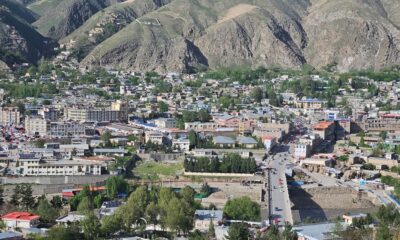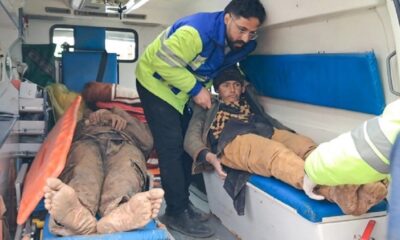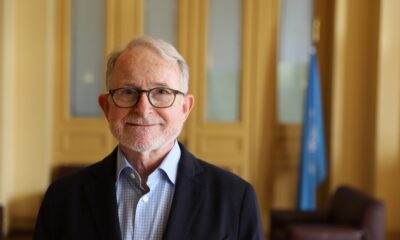Health
Bayat Group launches aggressive public health campaign – Coronavirus

The Bayat Group has launched an aggressive public health campaign – Stop The Virus (STV) – aimed to help Afghanistan to fight the novel Coronavirus.
The Bayat Group, one of Afghanistan’s largest private companies, and its two largest operating entities – Afghan Wireless Communications Company (AWCC), Ariana Television and Radio (ATN) – and Bayat Foundation have launched the nationwide public health initiative, which is disinfecting the cities and providing Afghans with essential information on how to protect themselves from contracting COVID-19.
 In a statement released on Tuesday, April 14, the Bayat Group said that it launched the campaign in March in partnership with the Afghan Ministry of Public Health.
In a statement released on Tuesday, April 14, the Bayat Group said that it launched the campaign in March in partnership with the Afghan Ministry of Public Health.
According to the statement the Bayat Group has also initiated public disinfection activities in many districts and public health facilities in Kabul and Kandahar in early April.
“COVID-19 is Afghanistan’s most serious health challenge in decades — and we’re determined to do everything possible to stop this virus from infecting more Afghans,” said Dr. Ehsan Bayat, the Founder and Chairman of The Bayat Group.
The organization has planned to expand the campaign throughout Afghanistan including in Herat, Nangahar, Balkh, Kandahar, and Kunduz Provinces.
“Working in partnership with The Afghan Ministry of Public Health, we’re expanding our Stop The Virus public health and education campaign throughout Afghanistan,” Dr. Bayat added.
“The Bayat Group and The Bayat Foundation will never relent in our long-term efforts to expand Afghanistan’s network of hospitals and medical clinics,” Dr. Bayat noted.
The Bayat Group’s leadership, and AWCC’s and ATN’s multi-faceted program to stop the spread of COVID-19, has been eagerly welcomed by H.E. Dawood Sultanzoy, the Mayor of Kabul City, together with many other public officials throughout Afghanistan.
Meanwhile, the Bayat Group and AWCC also distributed information about how to Stop The Virus to millions of Afghans, via the AWCC and ATN websites, Facebook, Twitter and SMS messages to AWCC’s 5,000,000 subscribers and ATN’s social media followers. This messaging — which was also made available in informational brochures as well as via regular television and radio Public Service Announcements (PSAs) — contained simple, easily-implemented recommendations for preventing the spread of COVID-19, including:
- Frequent hand washing, with soap and water
- Avoidance of close contact with others, by staying home as much as possible and keeping at least six feet apart from people (Social Distancing)
- Wearing masks or other face coverings when in the presence of others
- Covering coughs and sneezes
- Cleaning and disinfecting surfaces often
The STV is a powerful and compassionate example of The Bayat Group’s commitment to protect the health of Afghans.
“This is just another step in our journey to help give all Afghans to have access to healthcare that keeps them strong, healthy and able to build better lives.”
Dr. Ehsanollah Bayat underscored.
It comes as 70 new positive cases of COVID-19 have been registered in Afghanistan – Kabul 31, Herat 22, Kandahar 3, Ghazni 3, Maidan Wardak 2, Kunar 2, Nangarhar 2, Nimruz 2, Faryab1, Urozgan 1 and Baghlan 1 – bringing the total affected to 784 with 25 deaths and 40 recoveries, the Ministry of Public Health confirms.
Since 2006, The Bayat Group and The Bayat Foundation, Afghanistan’s largest charitable Foundation, have completed 500 projects to improve the health of Afghans, including the construction of fourteen hospitals that have provided life-saving medical treatment to 3,000,000 people.
Click here to download the press release!
Health
Afghanistan faces acute shortage of specialist doctors, officials urge ethics and expansion of health services
Noor Jalal Jalali, the Minister of Public Health, said the ministry is making sustained and intensive efforts to address the gap and expand access to healthcare services in remote and underserved areas of the country.
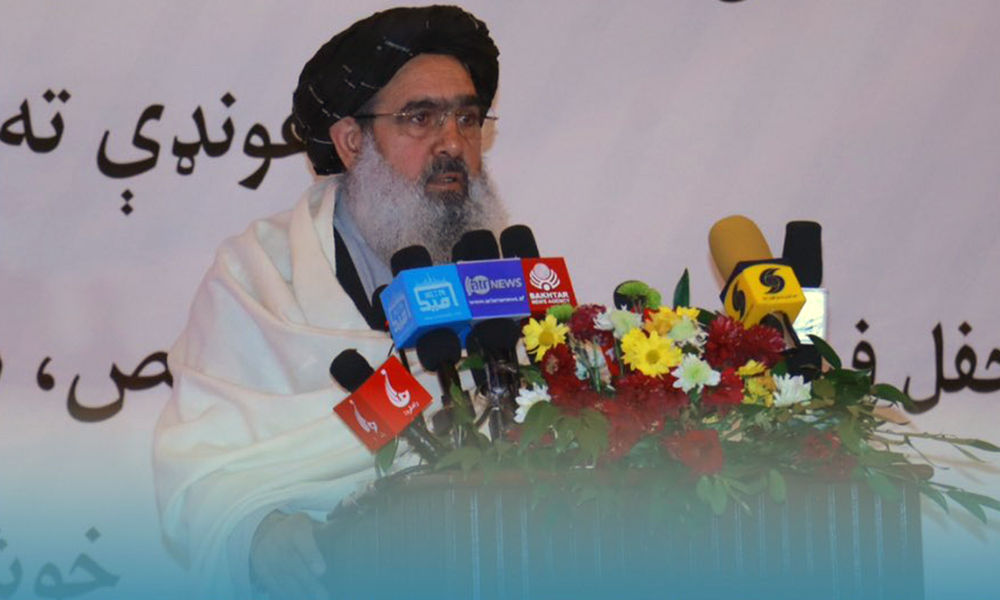
Afghanistan is continuing to face a serious shortage of specialist doctors, health officials said during the graduation ceremony of specialist physicians from the General Directorate of Medical Specialization for the year 1404.
Noor Jalal Jalali, the Minister of Public Health, said the ministry is making sustained and intensive efforts to address the gap and expand access to healthcare services in remote and underserved areas of the country.
According to Jalali, hospitals are still absent across 318 districts nationwide. He added that initial construction work for hospitals has been completed in 100 of these areas, stressing that strengthening health infrastructure and training qualified specialists remain top priorities for the ministry.
Jalali also called on doctors and health officials to uphold their professional and religious responsibilities by treating patients with compassion, dignity, and good conduct. He emphasized that medical practice should not be driven by material gain, but by the pursuit of public service and the well-being of the people.
Speaking at the same ceremony, Hamdullah Nomani, Minister of Communications and Information Technology noted a decline in public trust toward some medical professionals, saying that despite the presence of many committed and ethical doctors, the behavior of a few motivated solely by financial gain has undermined patient confidence. He urged newly graduated specialists to serve with sincerity and restore public trust in Afghanistan’s healthcare system.
Meanwhile, Abdul Wali Sadiqi, the financial and administrative deputy minister of public health, advised graduates to remain committed to their profession, fulfill their responsibilities honestly, and serve the public with dedication. He stressed that efforts in national service should match those made in personal affairs.
In addition, Abdul Baqi Haqqani, head of the National Examinations Authority, highlighted that humans carry two fundamental responsibilities: worship of Allah and preservation of health, underscoring the vital role doctors play in safeguarding public health.
Health sector experts say Afghanistan now needs skilled and professional medical personnel more than ever, calling for increased investment in specialist training and healthcare infrastructure to meet the country’s growing needs.
Health
Afghan delegation heads to Turkey for medicine talks

Naemullah Ayoubi, Director General of Drug and Health Products Regulation at Afghanistan’s Ministry of Public Health, has departed for Turkey on an official visit accompanied by a technical delegation.
The Ministry of Public Health said the delegation will hold meetings with officials from Turkey’s pharmaceutical regulatory authority and discuss a number of key issues related to the regulation of medicines and health products.
The delegation is also scheduled to visit several pharmaceutical manufacturing factories in Turkey.
According to the ministry, the visit aims to strengthen coordination between the two countries in the production and import of medicines, in order to ensure the availability of high-quality and affordable pharmaceuticals for people in Afghanistan in both the short and long term.
Health
Afghanistan opens first national cancer diagnosis and treatment hospital
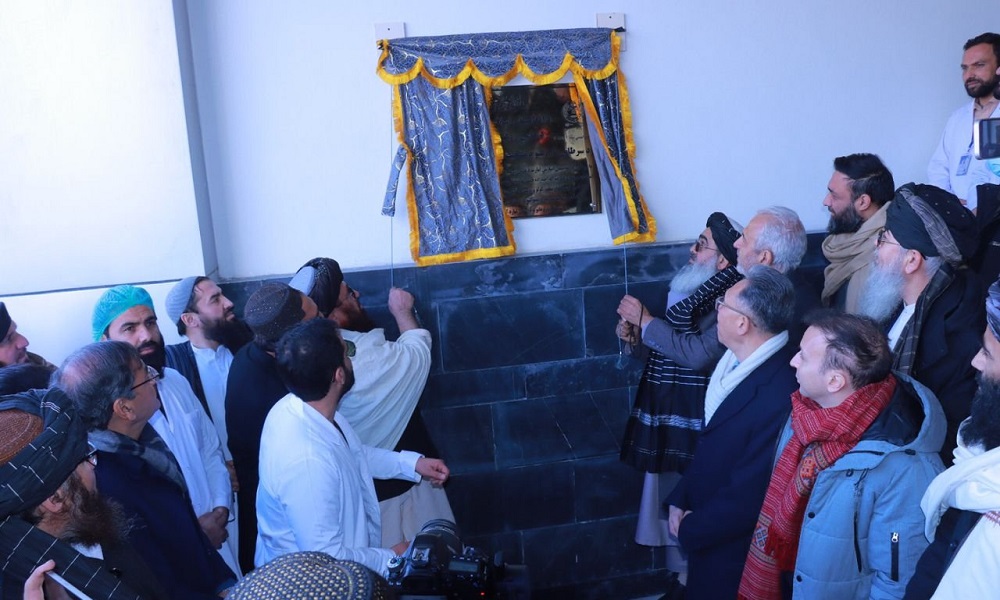
The Ministry of Public Health announced on Thursday that Afghanistan has inaugurated its first national hospital dedicated to the diagnosis and treatment of cancer, marking a major step forward in the country’s healthcare services.
The facility, named the National Cancer Diagnostic and Therapeutic Hospital, has officially begun operations and will provide specialized care for cancer patients across the country.
Speaking at the inauguration ceremony, Public Health Minister Noor Jalal Jalali said the 200-bed hospital aims to offer hope and improved treatment options for patients suffering from cancer.
“Fortunately, we are jointly opening a 200-bed hospital for cancer patients, and we hope that this hospital will become a source of hope and healing for those in need,” Jalali said.
The minister added that specialized training programs will soon be launched at the hospital to educate and train domestic medical specialists. He noted that reforms have already been implemented to improve facilities and ensure better healthcare services.
Jalali also emphasized international cooperation in the project, saying that radiotherapy services will be introduced at the hospital with support from India. According to the ministry, India has so far provided $1 million in assistance, including 10 tons of medicines and medical equipment, to support cancer treatment in Afghanistan.
The opening of the hospital is expected to reduce the need for Afghan patients to seek costly cancer treatment abroad and improve access to specialized care inside the country.
-

 Latest News4 days ago
Latest News4 days agoIEA releases three Pakistani soldiers to mark Ramadan
-
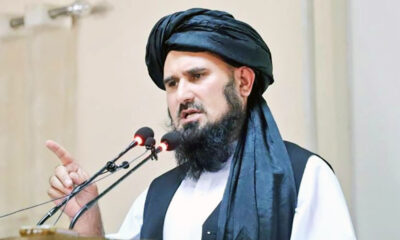
 Latest News3 days ago
Latest News3 days agoAfghanistan’s Chief of Armed Forces underscores readiness and equipment for national defense
-

 Latest News2 days ago
Latest News2 days agoAfghanistan welcomes investment and technology partnerships with India
-
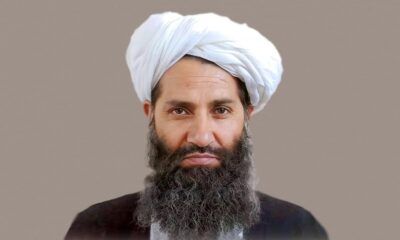
 Latest News4 days ago
Latest News4 days agoGrateful to Afghans and Ulama for obeying the Islamic Emirate, says Hibatullah Akhundzada
-

 Sport2 days ago
Sport2 days agoAfghan Peaks founder climbs Aconcagua to promote Afghanistan’s mountain potential
-

 Latest News1 day ago
Latest News1 day agoIndian customs seize Chinese walnuts falsely declared as Afghan
-

 Business4 days ago
Business4 days agoAfghan delegation visits Belarus to strengthen economic and industrial ties
-

 Business2 days ago
Business2 days agoPakistan allows re-export of stranded Afghan transit cargo







